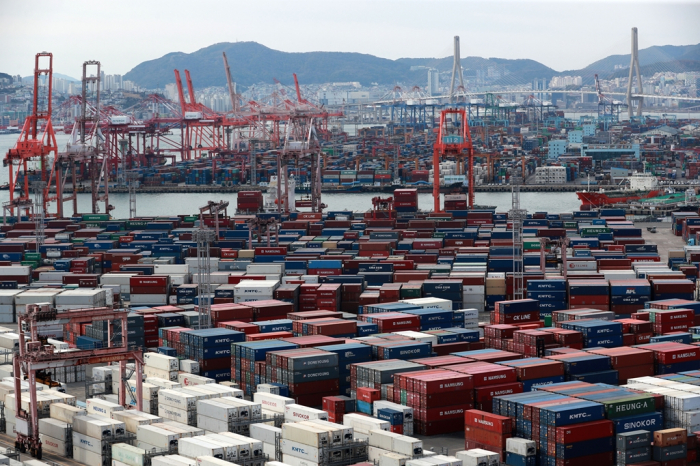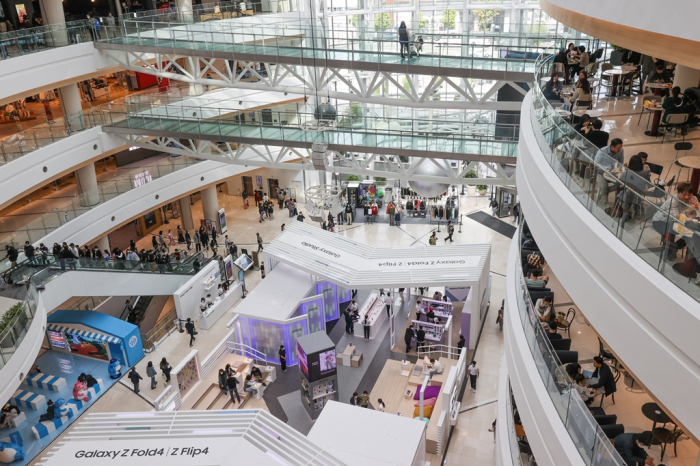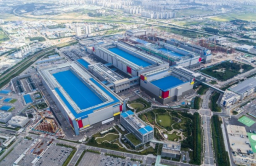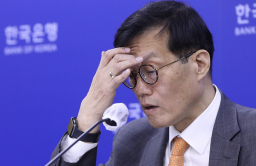-
KOSPI 2577.27 -2.21 -0.09%
-
KOSDAQ 722.52 -7.07 -0.97%
-
KOSPI200 341.49 +0.02 +0.01%
-
USD/KRW 1396 -2.00 0.14%
Korea to face more headwinds after Q3 growth hits 1-yr low
Economy
Korea to face more headwinds after Q3 growth hits 1-yr low
Economic growth is likely to slow further with weakening domestic demand; BOK may raise interest rate by 25 bps, not 50 bps
By
Oct 27, 2022 (Gmt+09:00)
2
Min read
News+

The South Korean economy grew at its slowest pace of the year in the third quarter on weak net exports, adding to concerns over a further slowdown in Asia’s fourth-largest economy, given the global downturn amid worldwide interest rate hikes.
The country’s gross domestic product (GDP) grew by a seasonally adjusted 0.3% in real terms during the July-September period from the previous three months, the lowest since the third quarter of 2021, the Bank of Korea estimated on Thursday.
The net exports contribution to GDP was a drag of 1.8 percentage points as imports increased 5.8%, far more than a 1% rise in exports, according to the data.
The economy is expected to slow further as global demand is likely to weaken more, lowering the chances of the central bank making another 50-basis-point interest rate hike, economists said.
“Exports are also likely to turn weak again, due to the economic slowdown of major trade partners such as the US, EU, and China and sluggish semiconductor exports,” said Min Joo Kang, senior economist at ING, in a note. “We maintain our view that the economy will experience a moderate recession early next year.”
Kang said the BOK is predicted to raise its policy interest rate by 25 bps at its last policy meeting for this year on Nov. 24, instead of 50 bps. The central bank delivered its second 50-bp increase earlier this month, pushing up the base interest rate to 3.00%, the highest since October 2012, as the ailing South Korean won currency added to inflationary pressure.
PRIVATE CONSUMPTION, INVESTMENT TO WEAKEN
The economy in the third quarter was supported by strong domestic demand with capital expenditures and private consumption up 5.0% and 1.9%, respectively. The capex was boosted as Samsung Electronics Co., the world’s largest memory chipmaker, spent 12.7 trillion won ($9 billion) on semiconductor facilities at a local production complex.
But the outlook for domestic demand became cloudier as rising interest rates ramped up the financial burdens of households with debts and the recent bond market crisis stemming from the Legoland Korea developer’s default jacked up funding costs, analysts and policymakers said.
“Private consumption is likely to stay on a recovery path, but the speed of the recovery is likely to slow due to factors such as rising interest rates and inflation,” said Hwang Sang-pil, head of the BOK’s economic statistics bureau.

The central bank expected the economy to meet its growth forecast of 2.6% this year. The growth is expected to be far lower in 2023.
BOK Governor Rhee Chang-yong has suggested the central bank may next month revise down an earlier 2023 growth forecast of 2.1%.
Banks and private economic institutions expected the growth to fall below 2% with ING seeing a mere 0.7% and Oxford Economics forecasting 1.0%.
The Korea Economic Research Institute, a think tank run by the business lobby group Federation of Korean Industries, saw risks of stagflation, a period of stagnant economic growth accompanied by persistently high inflation and a sharp rise in unemployment.
“The economy is more likely to suffer a recession starting from next year with stagflation becoming a reality,” said Lee Seung-suk, a research fellow at KERI.
Write to Mi-Hyun Jo at mwise@hankyung.com
Jongwoo Cheon edited this article.
More To Read
-
Oct 12, 2022 (Gmt+09:00)
-
 Korean chipmakersSamsung’s $22 bn new chip plant up and running to make NAND flash
Korean chipmakersSamsung’s $22 bn new chip plant up and running to make NAND flashSep 07, 2022 (Gmt+09:00)



